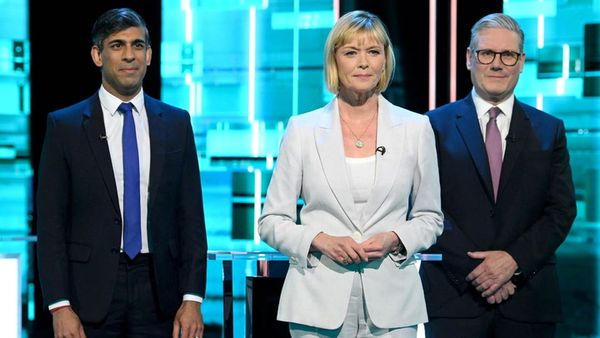
The competition watchdog should have its powers increased so it can initiate its own inquiries with mandatory disclosure clout, says Gina Cass-Gottlieb, the head of the Australian Competition and Consumer Commission.
The ACCC can now launch its own investigations, such as a probe into exorbitant foreign exchange transfer fees. However, the agency only has compulsory information collection powers if specifically directed by the government such as for its current probe into supermarket behaviour.
“There are a range of businesses that won’t provide information on a voluntary basis and particularly won’t go to the effort of producing very detailed data [or] internal documents on a voluntary basis,” Cass-Gottlieb told Guardian Australia.
The ACCC had been calling on the government to change its controlling act – originally legislated 50 years ago and renamed the Competition and Consumer Act in 2010 – for some time. Such an amendment only remains “under consideration” even though the power to self-start inquiries would be “proportionate and valid”, she said.
Cass-Gottlieb will unveil the ACCC’s compliance and enforcement priorities for the 2024-25 year in a speech on Thursday. Dealing with cost of living pressures and the push towards net zero emissions top the agenda based on complaints it received by the agency.
“We make a decision [on priorities] in terms of the areas that we see have the most capacity for harm in terms of consumers, businesses and to the state of competition,” she said.
Australia’s relatively small economy means many sectors are dominated by a couple of major competitors. Still, the Reserve Bank has said it sees little evidence the recent inflation spike has been driven by firms using their market clout to increase profit.
In the case of the year-long supermarket inquiry, launched in January, Cass-Gottlieb said ACCC would examine each of the steps from the farm gate to the supermarket shelf of Coles, Woolworths and others. The profit margins of processors, wholesalers and traders would be among those looked at closely.
Essential services such as energy were also getting scrutinised. The ACCC has, for instance, set up an encrypted portal specifically for people to provide anonymous disclosures about the gas industry.
“We are the agency to monitor and enforce the new mandatory gas code,” Cass-Gottlieb said, adding the energy supply support “very important” sectors of the economy in eastern Australia.
Monitoring the emerging decarbonisation field was also vital. “Many consumers are choosing products on the basis that they are investing in sustainability and reducing emissions and reducing impacts on our environment,” she said.
When firms made false claims about the sustainability of their products, not only were consumers cheated. Companies that were doing the right thing also faced “unfair competition” from companies that made unsubstantiated climate-friendly claims.
Cass-Gottleib said the ACCC had tapped the experience of the UK and New Zealand to head off potentially anti-competitive behaviour by firms providing electric vehicle charging. “We have an eye to ensuring that these new markets and new services are not the subject of anti competitive agreements, which will result in consumers seeing less innovation, less choice, and higher prices,” she said.
The agency was also working with state and federal governments to ensure safety standards were in place for products such as lithium-ion batteries after it released a report last year on the risks.
Penalties were on track to set record highs in the current 2023-24 year. This tally was led by the $438m fine imposed against on former vocational college Phoenix Institute of Australia Pty Ltd (Phoenix) and its marketing arm Community Training Initiatives Pty Ltd (CTI) “for acting unconscionably and misleading consumers”, Cass-Gottlieb will say in her Thursday speech.
“We are seeking higher penalties so that contravening our act does not just result in a penalty at a level that’s seen as a cost of doing business,” she said. The fines need to be large enough to deter companies similar actions in the future.







